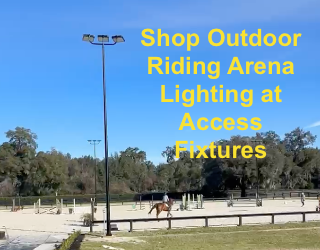Title: "The Magical Meadows: Transforming Lives Through Therapeutic Horseback Riding"
Tammy Stackhouse helps Kynzlee Cable get her foot into the stirrup of her saddle. Stackhouse founded The Magical Meadows, a nonprofit offering therapeutic horseback riding, in 2007. Since then, the operation has expanded from one weekly rider to 120.
Text and Photos
By Lilli Dwyer
InkFreeNews
Editor’s Note: This article was taken from the June issue of Senior Life ELKO edition.
WARSAW — The Magical Meadows started in 2007 with “a young man with autism, a horse named Magic and my driveway,” said owner and founder Tammy Stackhouse.
The Magical Meadows, 3386 E. 525N, Warsaw, offers therapeutic horseback riding to children and adults with disabilities, at-risk children, veterans, and first responders.
Stackhouse, a former medical worker and school bus driver, was approached by the mother of one of her students with an idea. Knowing Stackhouse had horses, she was curious about therapeutic horseback riding for her son.
“I knew nothing about it, began to research it and fell in love with the concept because with having horses, I knew how healing they were in my life. I could see how beneficial it could be for disabilities,” Stackhouse said.
Eighteen years later, the facility is up to 42 acres, 23 horses, and nine dedicated staff members. About 120 riders are served weekly, including Stackhouse’s first rider, now 33.
Riding and challenges like weaving through poles on horseback offer many benefits, Stackhouse said, that complement traditional therapies.
“There’s stretching, hand/eye coordination, vocalization, eye contact, communication. We try to encourage things the kids struggle with … Even if they do nothing but sit on that horse, they are receiving benefits because the movement of the horse is exactly like the movement of our muscles when we walk or run,” she explained.
Learning to ride can offer emotional benefits as well as physical.
“Through the years, people have said, ‘how can you get them to sit up straight, how can you get them to do this?’ Well, it’s that horse that is giving them the courage, the confidence, the opportunity. Those kids rarely show any sense of fear,” Stackhouse said. “It’s beautiful to watch them do things that so many times they’re told they can’t. To watch a wheelchair sit on the ramp and the kid be lifted onto the horse where they can sit up tall and do things just like everybody else … It’s a sense of pride, of accomplishment, of joy.”
Currently, The Magical Meadows is working on its Growing With Heart campaign. The organization is looking to expand with two new indoor riding arenas, one being dedicated to the veterans and first responders program it started a few years ago. Warriors Mount Up is designed to give riders a sense of peace and connection with nature.
“Now that program is really beginning to expand … PTSD doesn’t only happen on Mondays, and that’s the only day we really have available for them with our classes. This gives them the chance to have that space and that care,” Stackhouse explained.
The Magical Meadows is also planning to offer more classes for its disabled riders with the other arena, as well as looking into partnerships with Joe’s Kids and other organizations that provide physical, occupational, and other therapies.
The Magical Meadows runs mainly on volunteers, and Stackhouse noted no prior experience with horses is necessary. Anyone interested can learn to groom the horses and lead riders through their sessions.
“Pretty soon you forget you’re walking next to a 1,200-pound animal,” she remarked.
Judy Himora, 70, hadn’t worked with horses when she started volunteering 11 years ago. Himora used to work for Whitko Community School Corporation.
“We brought the kids out here, I saw what they did and thought it was cool,” she recalled. “I mow, I trim, take care of the dogs, the horses, I’m with the riders. Whatever’s needed.”
She enjoys many aspects of volunteering there, including “being outside with the animals … the kids are really cool. The adults, too, they’re really interesting. You never know from day to day what’s going to happen,” Himora said.
To learn more about The Magical Meadows’ programs, apply to volunteer, or donate to the Growing With Heart campaign, visit themagicalmeadows.org or call (574) 265-3085.







